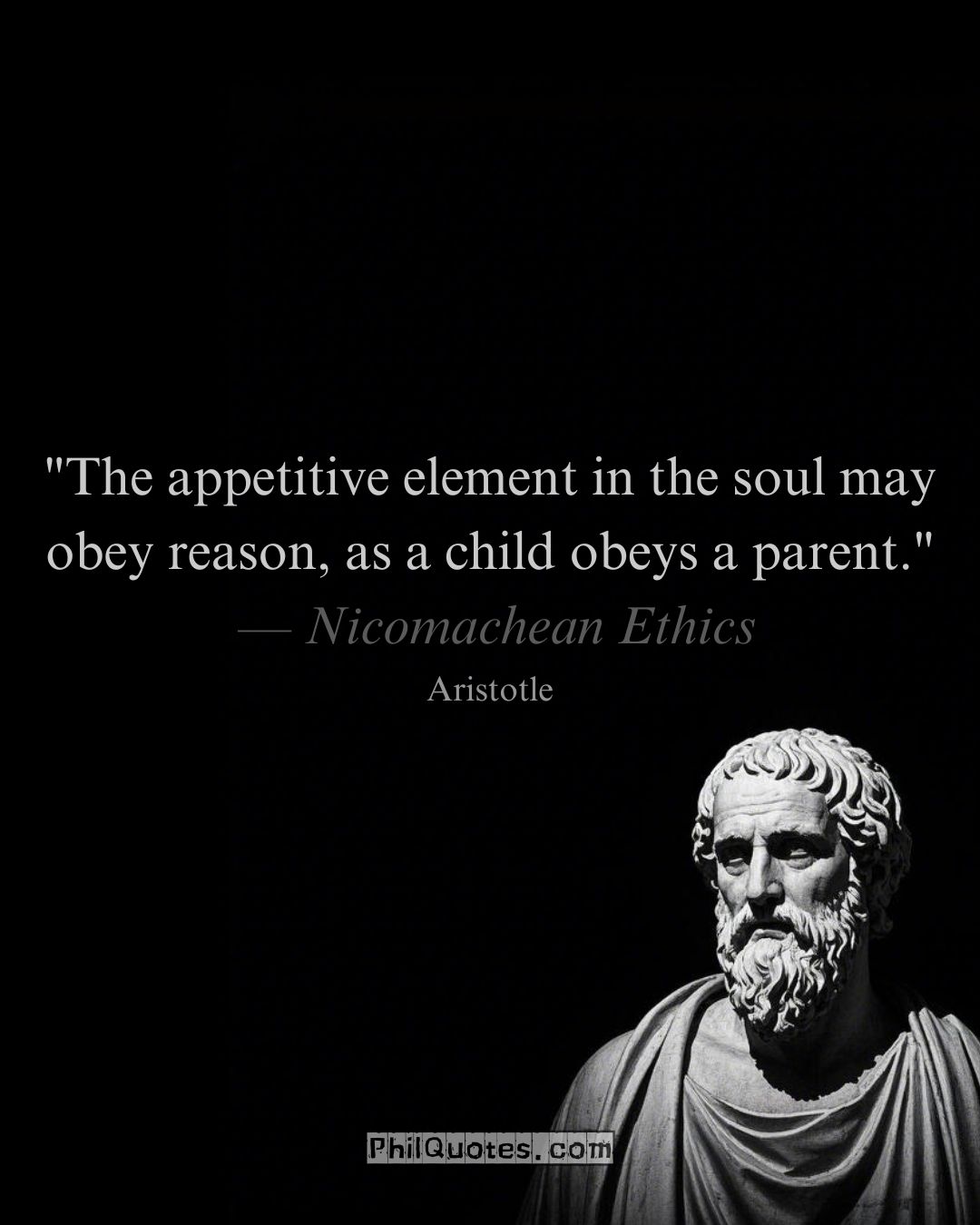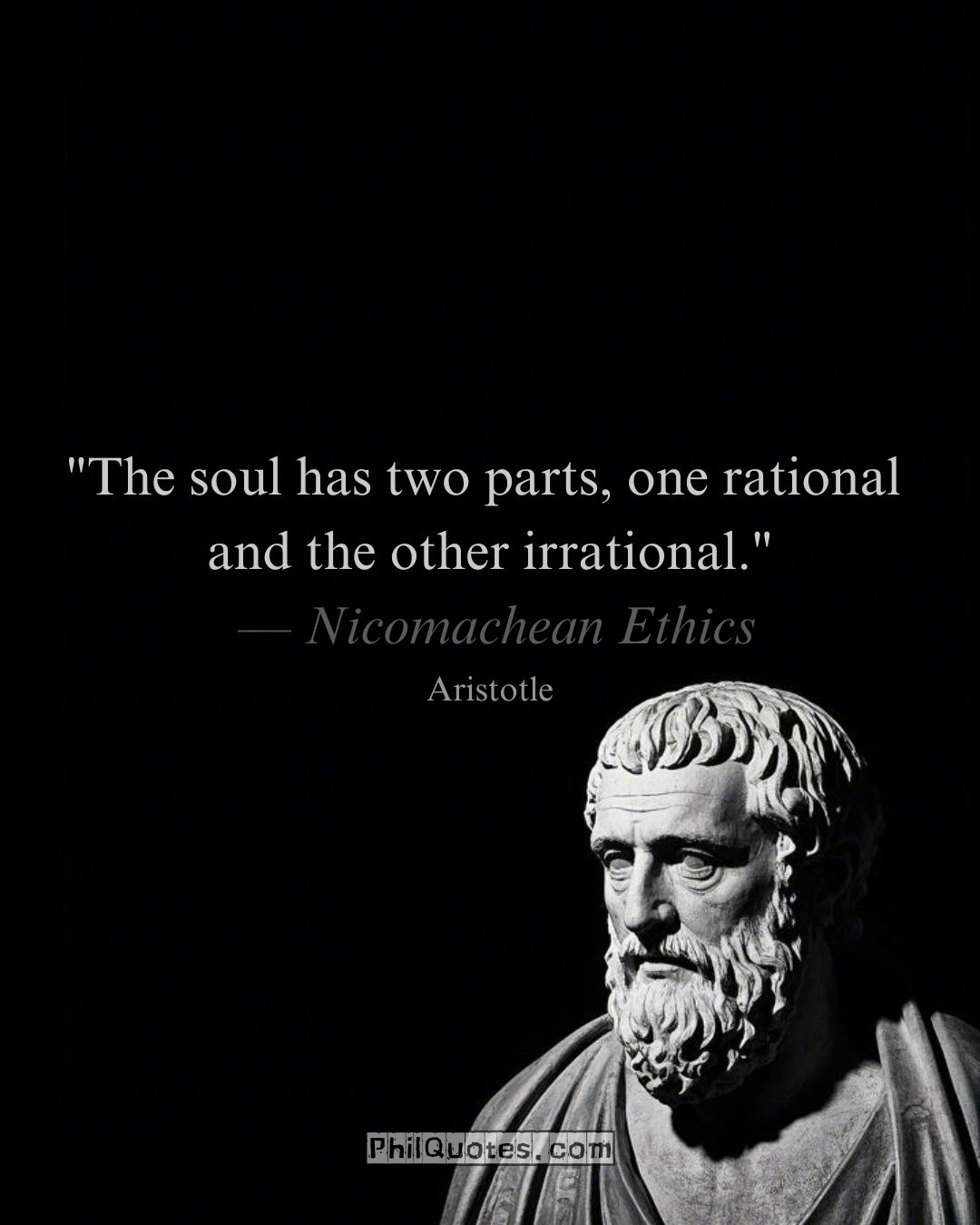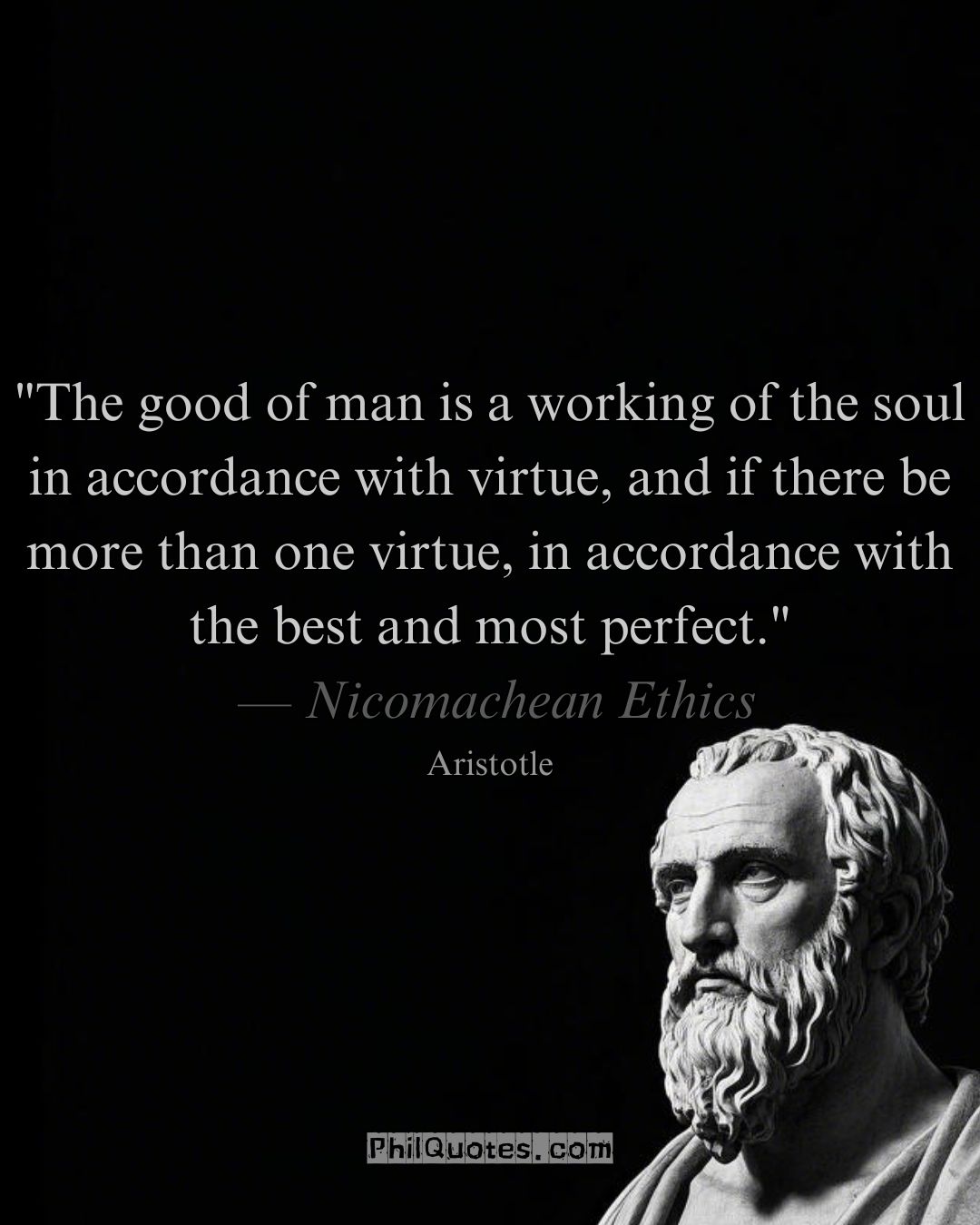Aristotle Nicomachean Ethics Quote: “The appetitive element in the soul may obey reason, as a child obeys a parent.”
“The appetitive element in the soul may obey reason, as a child obeys a parent.”— Aristotle, Nicomachean Ethics, Book I, Chapter 13 Explanation:Aristotle compares the appetitive soul (desires, emotions) to a child needing parental guidance — rational governance shapes raw impulses into ethical maturity. This dynamic mirrors a wild horse tamed by a skilled rider: … Read more


